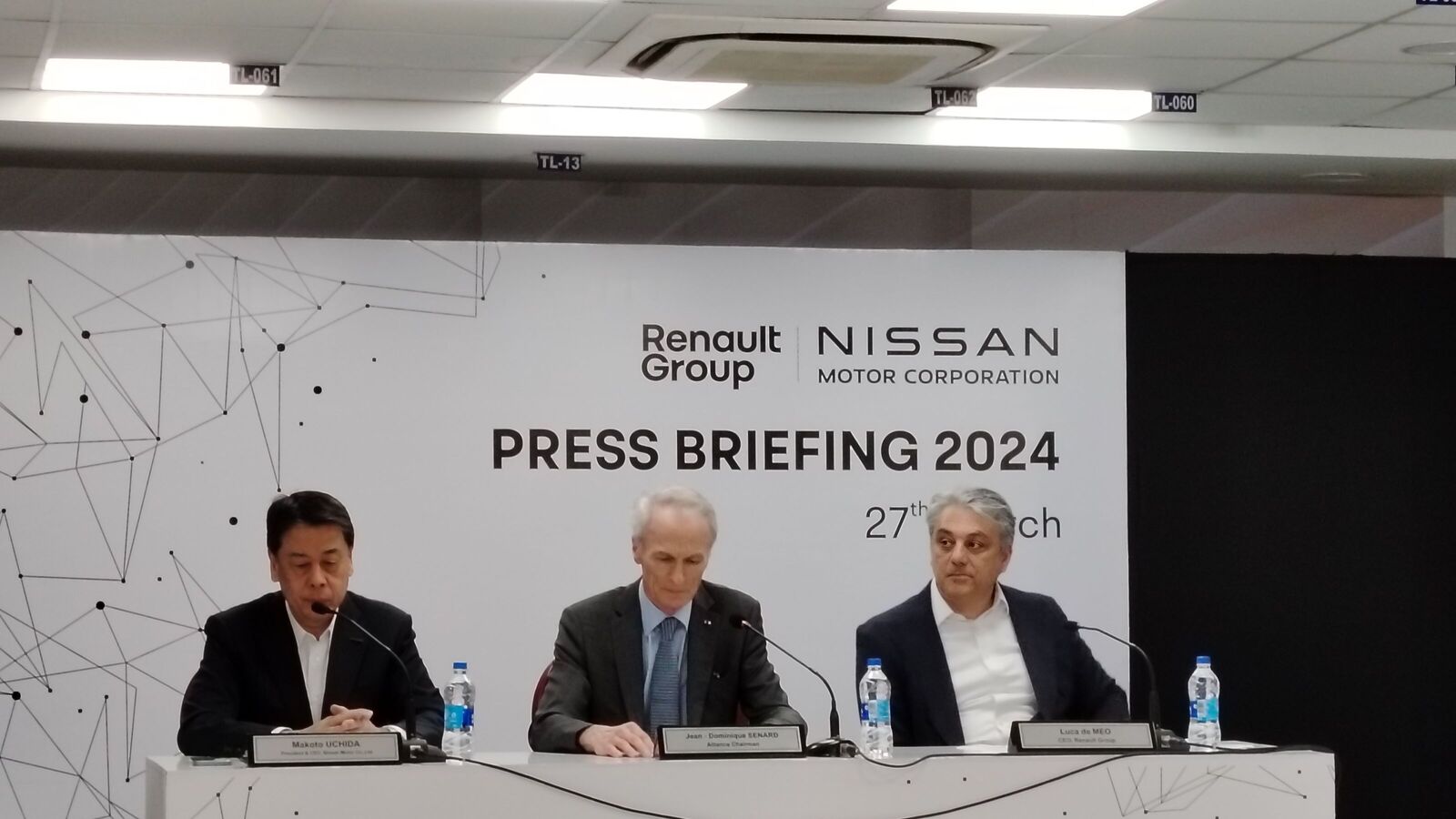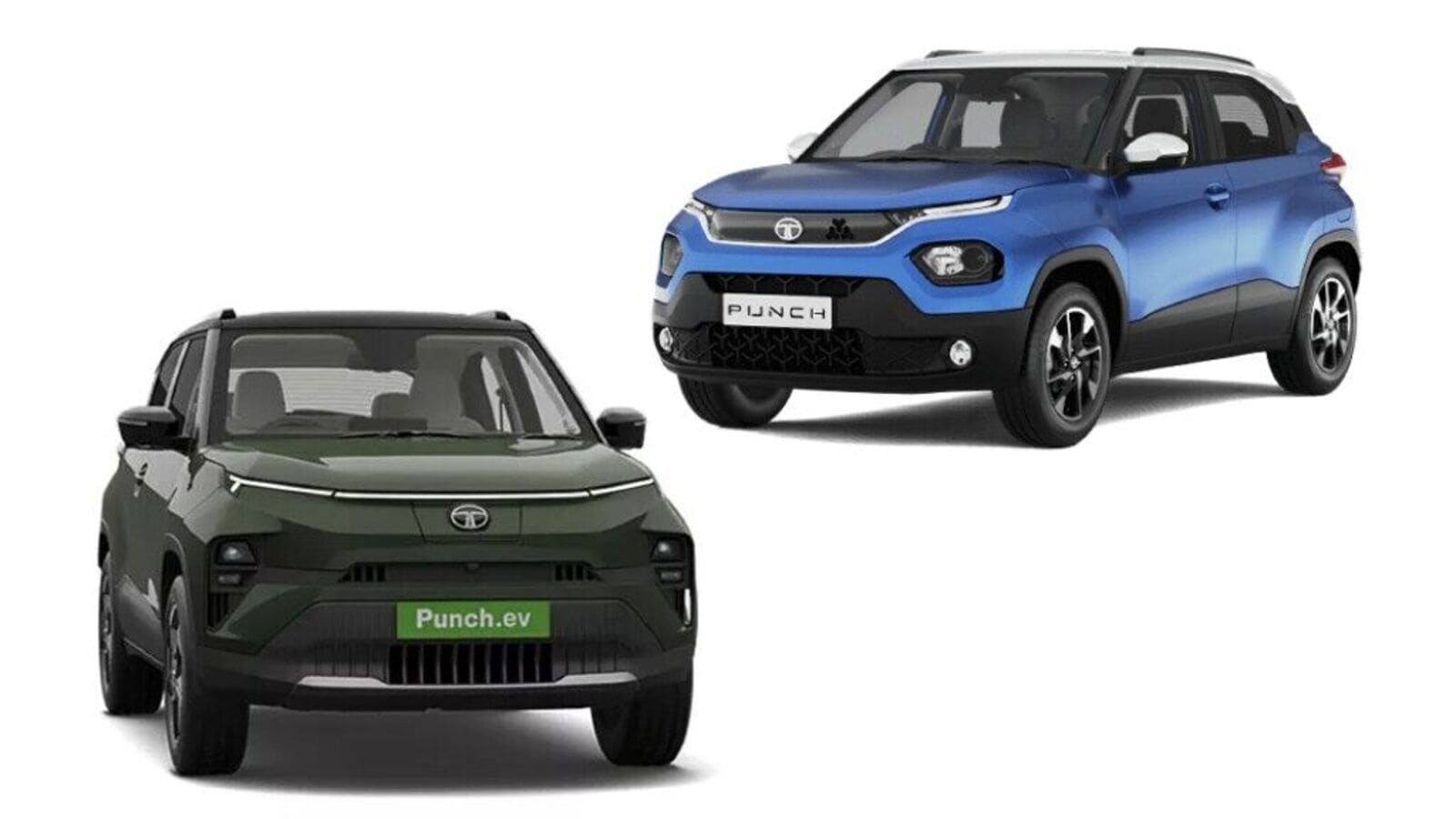Renault Nissan Alliance recently held a press meet in Chennai revealing the group’s India strategy going forward. The group has already announced that the carmaker duo will launch four new models, two from each manufacturer. These will include a five-seater and a seven-seater SUVs, manufactured jointly.
According to reports, the Renault Duster SUV is expected to make a comeback as the group hopes to emulate its success in the C segment. Luca de Meo, CEO at Renault Group, said, “We are probably right now in a low point of our lifecycle in India, but we had the opportunity to prove that we could be very successful in this market.” Meo did not specify the timeline for the launch of these upcoming models. However, he said that the new models will be possibly based on the CMF-B platform. This is the same platform that underpins the new generation Duters SUV, triggering speculation of a possible India comeback for the model.
Also Read : Renault-Nissan previews four new SUVs for India, 5 & 7-seater SUVs in the works
The Renault group CEO is of the view that in the past the alliance was focused on introducing cheaper models in India. However, the Indian market has shifted since then towards more feature-rich and sophisticated models. “We are here to do the right job, and by our means, we want to propose to the Indian customers what they want,” Meo added.
What happens to the planned EVs?
Renault and Nissan did not reveal their plans to enter the electric vehicle (EV) segment in India despite a global push. When the group initiated the second leg of its India journey last year, the plan was to introduce six models between the two brands which includes four C-segment SUVs and one EV from each of the brands. Meo said that the alliance needs to find its ‘secret sauce’, before jumping the gun. He explained that while EVs are definitely in plans for the future, the introduction of these models will depend on the success of the upcoming C-segment SUVs.
Interestingly, when asked about plans to bring in global EVs under the new EV policy announced by the Indian government, the CEO said that the company is still accessing the policy. He said, “We are rethinking our strategy entirely. We do that because we know it’s crucial, and we want to come up with a plan that will be solid, effective and sustainable.”
Also Read : Nissan unveils plans to sell one million vehicles with its new EV strategy
Meo is of the view that while public support is essential for the success of EV plans, backing from the government will also be crucial to the plan. “We need the authorities to create the right business conditions,” he said.
Nissan is also following the same path. Makoto Uchida, Director, Representative Executive officer, President and CEO at Nissan Motor, said that the introduction of EVs in India will depend on the country’s readiness to shift towards electric mobility.
In December last year, Nissan confirmed it would invest 600 million euros ($650 million) in Renault’s EV business Ampere. Nissan had also announced its collaboration with Honda to explore electrification and intelligent mobility. While the collaboration is still studying the prospects of a strategic partnership, Jean-Dominique Senard, Chairperson at Renault Nissan Alliance, said that any investment done by either of the carmakers will ultimately help in the growth of the alliance.
In India, while the Alliance is still exploring the potential of introducing EVs, Nissan is determined to expand its portfolio in the Indian market by incorporating alternative fuel options, as confirmed by Uchida.
What’s fueling the Alliance’s interest in India?
Renault Nissan Alliance’s global management aims to keep India at the centre of its global expansion plans. Senard said that India is not just a market, but also ‘a vibrant ecosystem of limitless opportunities’. “We are here to prove that India will play an increasingly important role in the alliance and each one of the companies,” Meo added. Fueling this ambition is the alliance’s RNAIPL (Renault Nissan Automotive India Private Limited) manufacturing plant in Chennai.
The group’s aim is to develop India as a 360-degree hub to serve Renault’s and Alliance global ambitions. “For example, our ambition is for RNTBCI to become one of the main centres of excellence for Digital, Artificial intelligence, HMI (Human Machine Interface) and connectivity,” the Renault CEO added.
While the global management is confident of the capabilities of the manufacturing plant, what they are most proud of are the employees. The facility, with more than 15,000 people, is assisting the alliance partners with global models such as the Renault 5 and Scenic, as well as the Nissan Leaf and X-Trail.
Senard emphasised that besides the development of new models for India and export markets, the group’s plan also includes the enhancement of new technologies, such as autonomous driving, connectivity and electrification. Meo said, “We are all very aware of the quality and skills of the people in this country. These people are clearly at the forefront of innovation, worldwide.”
While the Alliance announced its plans to invest a total of $600 million (INR 5,300 crore) to introduce six new models under its new strategy last year, the refreshed plan includes streamlining the operation and thus only four models have been confirmed in the new plan.
The plant, with a low level of automation of about 15 percent, has produced over 2.7 million cars to date, with almost half (1.2 million) being exported to over 100 international markets. While Uchida acknowledged the ‘great assets (employees)’ that the Alliance has in India, Meo added that the company will continue to have a human centric approach for the manufacturing plant.
First Published Date: 28 Mar 2024, 15:46 PM IST



